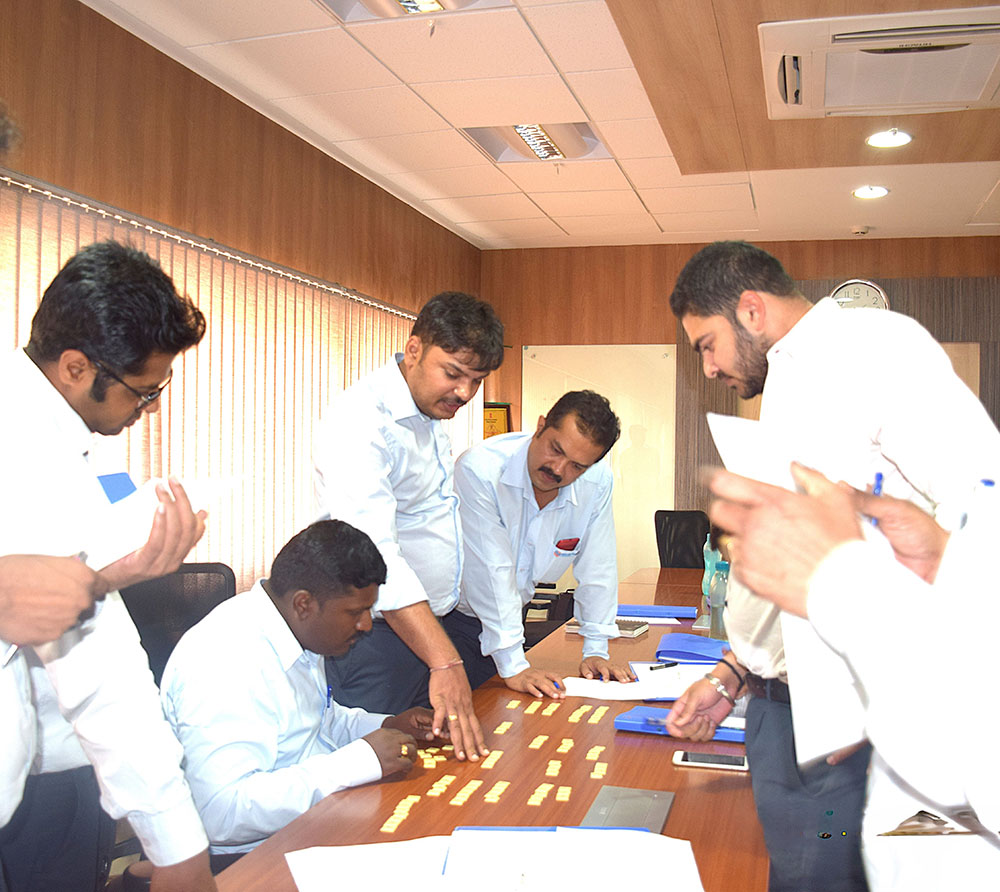
The term experiential learning means to learn through experience. Quite simply learning by doing.
As the famous saying by a Chinese philosopher Confucius goes: “I hear, I know. I see, I remember, I do, I understand”.
It is also said that a wise person learns from his mistakes, a wiser one learns from other’s mistakes. So let’s believe that we all have that wisdom to learn from our own mistakes here lies the secret to learn from Experiential Learning.Corporate Outbound Training and Leadership Development Training are good means to share experiential Learning.
According to David Kolb, a typical experiential learning cycle consist of four stages:
- Action
- Reflection
- Conceptualization
- Application
The Experience as Action serves to anchor a person in a common context. A person consciously or physically experiences a situation which make him realize that he need to reflect systematically in order to improve on his existing skill and practice.
At this stage he will make a note of a specific situation and just describe what he sees, how he feels and thinks.
Reflective Observation~ “WHAT HAPPENED?”
After same time when a person gets time after performance to reflect more deeply on what happened actually. He asks himself what worked? What failed? Why did others and I behave the way we did? There start the seeds of Learning.
Abstract Conceptualization ~ “WHAT’S IMPORTANT?”
Here the most reflections lead to what could I have done better or differently? How can I improve? You try to identify excuses for not happening as well as ways to improve. Person find ways for dealing with the situations and think up strategies for when you experience a similar situation again. A stage of right ideas generates through his own understanding
Active Experimentation ~ “NOW WHAT?”
Now practicing the newly acquired theoretical knowledge.
Experiential Learning (EL) gives a real time learning to people who are in field work more and left the habits of reading and writing. In EL the instructor guides rather than directs the learning process where the person in naturally interested in learning. Leadership development Programs gives a lot of EL sessions. Their own involvement, self-evaluation, interest, passion, and energy is important to make the whole session to learning outcomes as well as certain DOs and careful tips can make it more impactful are:
- Experiential learning occurs when carefully chosen Session labs are supported by reflection, critical analysis and synthesis.
- Experiences are structured to develop a requirement for that person to take initiative, make decisions and be accountable for results. Corporate Outbound Training gives lot of experiences.
- Throughout the experiential learning process, the person’s mind should be actively engaged in posing questions, investigating, experimenting, being curious, solving problems, assuming responsibility, being creative and constructing meaning.
- Participants are engaged intellectually, emotionally, socially, soulfully and/or physically. This involvement produces a perception that the learning task is authentic.
- The results of the learning are personal and form the basis for future experience and learning. We say after experiential learning sessions that “Learning has now begun.”
- Relationships are developed and nurtured: participant to self, participant to others and participant to the Organisation at large. Corporate Trainings serve this purposes through Outbound training sessions.
- The instructor and participant may experience success, failure, adventure, risk-taking and uncertainty, because the outcomes of the experience cannot totally be predicted.
- Opportunities are nurtured for participants and instructors to explore and examine their own values.
- The instructor’s primary roles include setting suitable experiences, posing problems, setting boundaries, supporting people, team building activities, insuring physical and emotional safety, and facilitating the learning process.
Apart from leaving a lasting impact, these experiences develop communication skills and self-confidence and gain and strengthen decision-making skills by responding to and solving real world problems and processes of the participants which are essential in business scenarios. Corporate trainings are a wonderful means.
